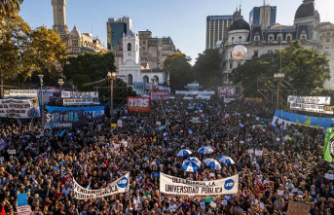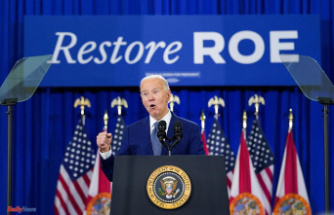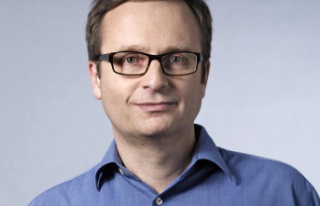Those who know her try somehow to persuade their world. Those who discover it, in the light of a lunch or a meeting with the press, are surprised by closing the door behind them. No, Elisabeth Borne is not (only) a block of ice, with hard eyes and closed features; yes, Elisabeth Borne sometimes has a teasing spirit and a facetious tone. Admittedly, this is not immediately obvious. This is why the Prime Minister, since her appointment at Matignon, has tried, here thanks to an interview with LCI aimed at splitting her armor, there with a little nod to her Minister of the Interior Gérald Darmanin in front of the cameras during of the first post-reshuffle Council of Ministers, to show another side of itself. His general policy statement to the National Assembly was also to serve as a meeting with the French, as much as a presentation of the roadmap for the five-year term. “It is to France that I speak,” she also declared in the introduction to her speech.
The political journalists had all been warned a handful of hours before the big jump in front of the overheated hemicycle - especially to its left: "It's a speech that looks like it: it's not there to make lyrical flights or big sentences, but to say concretely how we deploy the policies that the country needs", affirmed his entourage. For an hour, Elisabeth Borne kept her promise. However, on a few occasions, his style was surprising. Without sparks - it should not be exaggerated all the same... - the Prime Minister revealed a part of herself that many were unaware of.
Both in substance and form, this "DPG" resembled many "DPGs" before it. Forced to sweep across an immense spectrum of themes, the former Minister of Labor held a speech that sometimes resembled a succession of "bullet points", copied and pasted from statements by Emmanuel Macron during his presidential campaign and after his victory. The only notable announcement: the renationalisation of EDF to strengthen the country's energy sovereignty. All encompassed in a string of ready-made expressions, portmanteau words and broken doors which seem inherent to the exercise, coupled with this incorrigible Macronist tendency to technocratize vocabulary.
In the midst of all this, the French first discovered a Prime Minister not in the least intimidated by the hubbub, not to say heckling, not to say the din caused by the deputies of Nupes, and in particularly those of France Insoumise who have singularly - and probably too - illustrated themselves. Elisabeth Borne, straight as an "i", let the storms pass in silence. Only once did she seem overwhelmed, raising her head and glancing at the President of the National Assembly Yaël Braun-Pivet, who hastened to police.
Above all, the head of government has, from time to time, shown a certain malice. Even more surprising, she even seemed to take pleasure in this ordeal by fire which usually invites sobriety. It was enough to see her broad smile, which tended almost towards a form of elegant provocation, each time she mentioned and apostrophized the presidents of groups with whom she had spoken two weeks ago, to realize that. account. About the ecological transition: "Madam President Châtelain, Mr President Bayou, we talked about it." About the balance of public finances: "We talked about it, precisely, Mr. President Marleix." About medical deserts: "Many have spoken to me about it, in particular President Vallaud, on this subject too, we can build consensus."
All ? No. The presidents of the LFI and RN group, Mathilde Panot and Marine Le Pen, sent back to back in their anti-republicanism, did not have the right to their crafty little coquetry. Elisabeth Borne, one of whose missions was to ostensibly show that she was reaching out to find compromises for each text that would be examined, had a blast. We no longer count the number of times she pronounced the words "together" (25 occurrences), "to build" (24) or, precisely, "compromise" (7). Like Emmanuel Macron during his speeches, the Prime Minister took the opportunity to take the French to witness. Bigger is...
In the lot of political mischief, we will also note a few attempts to unsolder the noisy Nupe deputies who faced him. "The energy transition goes through nuclear power, I know that this is a widely shared conviction on these benches", she notably launched, not without targeting the communist parliamentarians who distinguish themselves from their rebellious and Green allies on this subject. . Nice blow: some deputies of the PCF even applauded, at this moment, the head of government.
Elisabeth Borne closed her general policy statement by loosening the screw somewhat: she referred to her family origins, her status as a pupil of the nation, paid tribute to women politicians - Irène Joliot-Curie, Suzanne Lacore, Cécile Brunschvicg , Simone Veil, Edith Cresson... - "who opened the way". A more moving conclusion, undoubtedly more heartfelt. "Building together, we will succeed", she declared for her very last words: if, in the elaboration of the texts, that is not so certain, Elisabeth Borne will at least have managed to build, in part, his character as Prime Minister.












